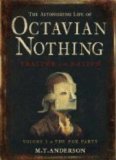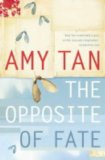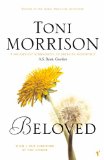Winner of the National Book Award 2006
I picked this book up after seeing C.B. James mention it as one of his favourite reads of 2008.
The book is set in Boston during the 18th Century and centres on Octavian, a young boy who lives in a strange house with his mother and an array of unrelated men. He is confused by his life, his vague memories of a past in Africa and the role of all the men in his household. As the book progresses Octavian and the reader slowly learn the shocking truth about his life….
I found this book very hard to get in to. Octavian’s confusion meant that the reader had no idea what was happening for a while. The book was written with a very flowery language, which although not difficult to understand, meant that reading did require a lot of concentration and this also distanced me from the characters.
The men who raised me were lords of matter, and in the dim chambers I watched as they traced the spinning of bodies celestial in vast, iron courses, and bid sparks to dance upon their hands; they read the bodies of fish as if each dying trout or shad was a fresh Biblical Testament, the wet and twitching volume of a new-born Pentateuch. They burned holes in the air, wrote poems of love, sucked the venom from sores, painted landscapes of gloom, and made metal sing; they dissected fire like newts.
A further problem was that all the male characters in the book were referred to by numbers, rather than names. My poor little brain just couldn’t keep track of who was who. By the time I’d read and re-read everything and worked out what was happening I had lost interest in the story. I just didn’t feel that the effort I had put into understanding it was rewarded.
This book is marketed as a young adult book, but I’m not sure many teenagers would have the concentration to get through it. I think this book has many similarities with Beloved by Toni Morrison – it is very literary, hard to understand and tackles some difficult subjects. If you enjoyed Beloved then I’m sure you’ll like this, but it was too much like hard work for me.
Have you read this book?
Did you enjoy the rest of the series?
Do you enjoy reading books that require a lot of concentration?




